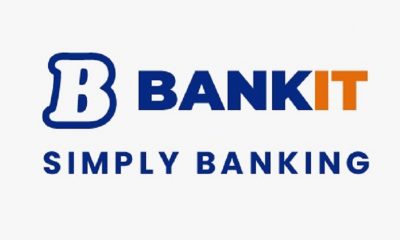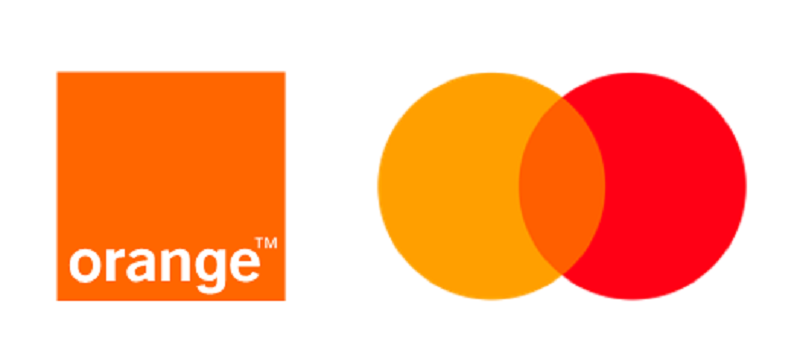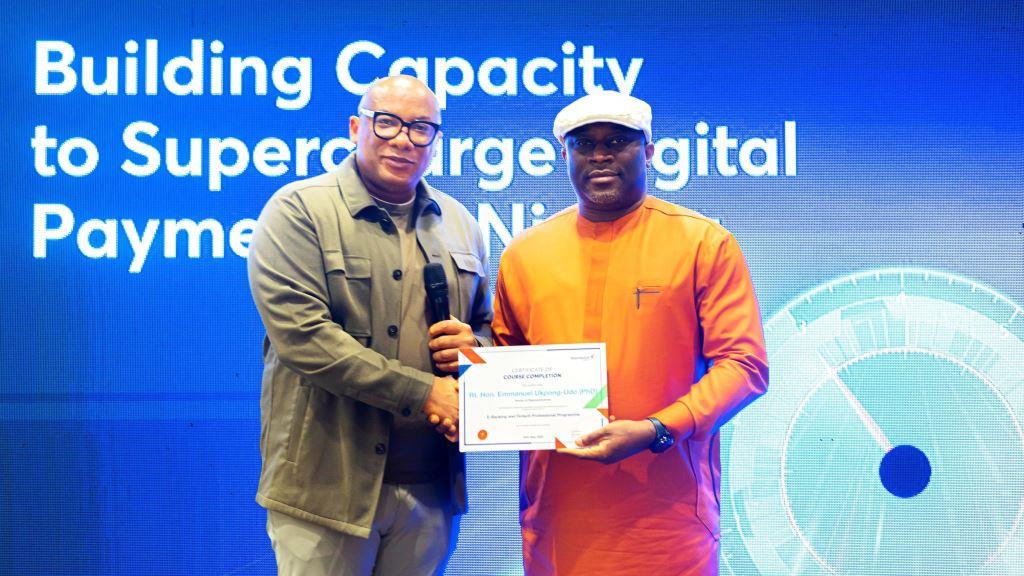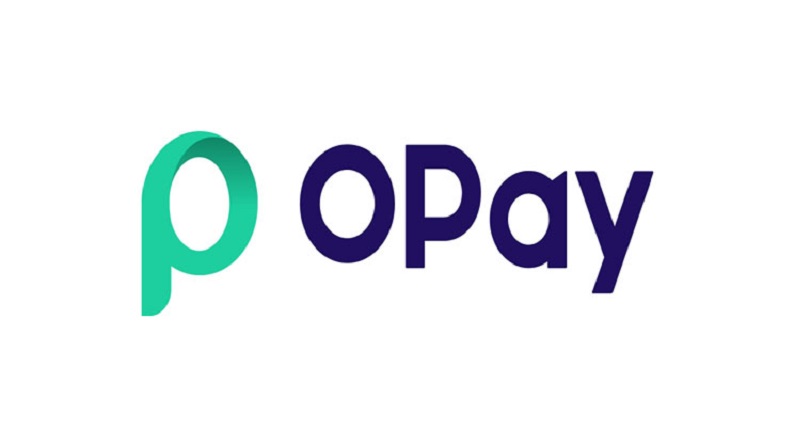Banking
Digital Banking – A Catalyst for Economic Growth and Financial Empowerment
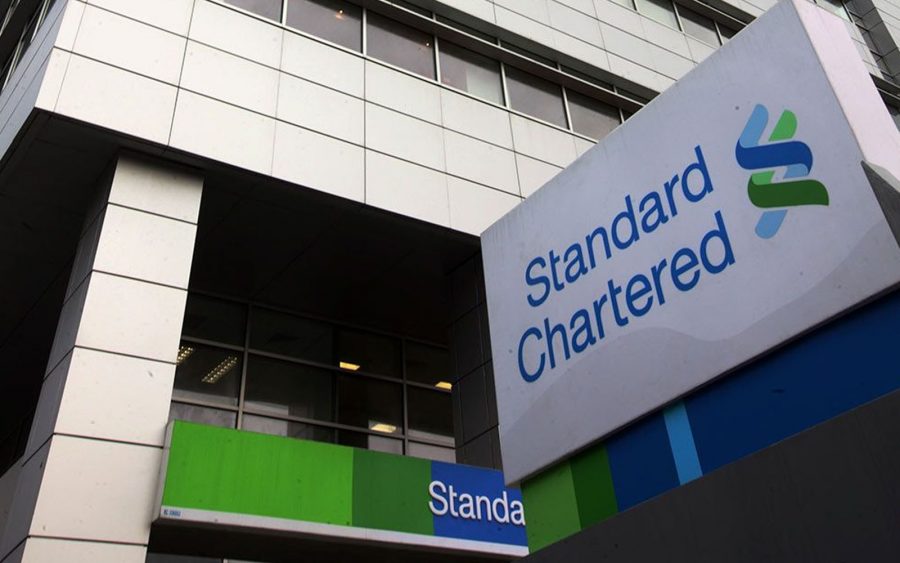
By Lamin Manjang
Think back to a time when the word ‘Bank’ came to mind. It conjures images of long queues, tally numbers, paperwork to complete, pressure to process transactions within working hours, awaiting physical approvals on transactions.
Fast forward to more recent times with the impact of technology and financial literacy, the word ‘Bank’ connotes different reactions to many people. Personalized financial growth, opportunities for business collaborations, access to foreign investment opportunities, transferable generational wealth and financial security all on one’s terms are some of the prevailing thoughts for customers.
Customers now have access to information around the clock at the touch of their fingers and as such can determine what financial needs they want their financial partners to meet. The union of innovation, digital literacy and collaborative opportunities to provide financial services, gives us the solution that is Digital Banking.
Digital banking in Nigeria has evolved significantly over the last five years to become an important part of our daily activities, driving e-commerce, wealth creation, payment solutions, financial empowerment, and improved standards of living.
In a world of digital banking and with innovation and technology positioning itself as the future of payments and wealth creation, there are several opportunities for financial institutions to tackle some of the country’s biggest challenges around job creation, economic empowerment and financial inclusion for youths while being a catalyst for efficiency within the sector.
As with any endeavour towards automation, curiosity with heightened caution is expected primarily around the impact on employment opportunities and business sustainability. However, the reality is that with digitization comes immense opportunities for employees in any organisation to acquire new skills that position them for the future working environment which will be predominantly digital.
Digitization fosters efficiency. For example, it broadens and extends a bank’s ability to reach existing and new customers, previously unreachable due to the limitations of the physical brick and mortar branches. Digitisations simplifies manual processes through automation; reduces delays encountered by end-users; creates new job opportunities, thereby creating multiple opportunities for reskilling, upskilling, and redeploying of employees into new roles.
At Standard Chartered, we are a listening and customer-centric financial institution. We are focussed on understanding how our customers want to transact; how we can improve on the products and services that are important to them while ensuring a smooth delivery method to these solutions.
A growing number of our customers are telling us that they want financial solutions that they can access and utilize anytime and anywhere from the convenience of their own mobile devices.
They want to be able to access investment opportunities 24/7 on the go at their fingertips and equally connect with our customer care specialists who can support them whenever they have any queries. Continuous optimization of our digital banking solutions enables us to meet these financial needs.
In December 2021, as part of the digitization journey we embarked on a few years ago towards enhancing our processes, we closed down 10 of our branches in Lagos and Abuja and made significant investments towards optimizing our operating channels, products and service solutions to suit the demands of our clients.
The decision, with the approval of the regulator, was also driven in response to changes in customer transaction behaviour. We have witnessed significant adoption of our digital banking services by customers as most of them continue to prioritize convenient banking over the need to visit any of our physical locations to access our products and services.
In addition to our customer-centric digital strategy, we pride ourselves in the implementation of a forward-looking People Strategy where we proactively plan our workforce needs to fulfil our Business Strategy.
The banking landscape is very dynamic with rapidly changing customer needs. This year, in response to this, we continue to strategically prepare our employees for the future working environment which will be primarily digital. We continue to upskill, equip, and redeploy employees especially those impacted by the closure of the branches in Lagos and Abuja to ensure career growth and stability for our employees this year.
But digitization is not just for the advantage of our customers and employees only. Digitisation provides an opportunity to positively impact the communities too.
The importance of quick access to finance for example cannot be undervalued and with financial exclusion still being a barrier in some parts of Nigeria – digital innovation in banking can influence positive transformation within the sector.
Recently the bank launched its Agency Banking service as part of its Digital Banking proposition to clients across Lagos. This builds on the launch of our world-class digital bank in December 2019. SC Mobile, the Bank’s mobile app has practically put the bank in the palms of the client as clients are able to open new accounts end to end, transfer funds, effect static data changes, get cards delivered to their doorstep, invest in real-time etc.
We equally launched our Unstructured Supplementary Service Data (USSD) service, *977# which caters to clients who may not have access to internet service and wish to transact. These are just some of the initiatives we continue to drive in support of CBN’s financial inclusion agenda to empower Nigerians.
We have taken a ‘Capturing the Digital Initiative’ approach that ensures that over 70 per cent of the most common service requests can be handled by our digital bank with distinct benefits such as a zero charge on all interbank transactions, zero charges on SMS notifications and free delivery of cards to customers regardless of location. We remain forward-thinking on how best we can continue to simplify and improve our customers experience with the bank.
From the 2020 NIBBS report, customers between 25 and 34 years old carried out 36% of all interbank instant payments. With an estimated 60% of the Nigerian population setting the tone for adopting innovative technology, it is essential to welcome the latter while also firmly holding the former by striking a balance in responding to customer-specific needs.
Digital banking is no longer a series of financial transactions and services. It is an innovative solution towards providing empowerment and creating sustainable prosperity for our clients, colleagues and the community. This is the future and we are all encouraged to adopt and maximize these changes for the benefit of all.
Lamin Manjang is the CEO of Standard Chartered Bank Nigeria.
Banking
The Alternative Bank Opens New Branch in Ondo

By Modupe Gbadeyanka
A new branch of The Alternative Bank (AltBank) has been opened in Ondo State as part of the expansion drive of the financial institution.
A statement from the company disclosed that the new branch would support export-oriented agribusinesses through Letters of Credit and commodity-backed trade finance, ensuring that local producers can scale beyond state borders.
For SMEs, the bank is introducing robust payment rails, asset financing for equipment and inventory, and supply chain-backed facilities that strengthen working capital without trapping businesses in interest-based debt cycles.
The Governor of Ondo State, Mr Lucky Aiyedatiwa, represented by his Chief of
Staff, Mr Olusegun Omojuwa, at the commissioning of the branch, underscored the importance of financial institutions in economic development.
“The pivotal role of financial institutions to economic growth and development of any economy cannot be overemphasised. It provides access to capital, supporting small and medium-scale enterprises and encouraging savings.
“Therefore, I have no doubt in my mind that the presence of The Alternative Bank in Ondo State will deepen financial services, create employment opportunities and stimulate economic activities across various sectors,” he said.
In her remarks, the Executive Director for Commercial and Institutional Banking (Lagos and South West) at The Alternative Bank, Mrs Korede Demola-Adeniyi, commended the state government’s leadership and outlined the lender’s long-term vision for Ondo State.
“As Ondo State steps into its next fifty years, and into the future anchored on the sustainable development championed during the recent anniversary celebrations, The Alternative Bank is here to be the financial engine for that vision. We didn’t come to Akure to hang banners. We came to fund work, farms, shops, and factories.”
With Ondo State’s economy anchored largely on agriculture, particularly cocoa production, poultry farming, and other cash crops, alongside a growing SME and trade ecosystem, AltBank is deploying sector-specific financing solutions tailored to these strengths.
For cocoa aggregators, processors and poultry operators, the bank will provide production financing, facility expansion support, machinery lease structures, and structured trade facilities under its joint venture and cost-plus financing models, with transaction cycles of up to 180 days for commodity trades and longer-term structured asset financing for equipment and infrastructure.
The organisation is a notable national non-interest bank with a physical network now surpassing 170 locations, deploying capital to solve real-world challenges through initiatives such as the Mata Zalla project, which saw to the training of hundreds of women as electric tricycle drivers and mechanics.
Banking
Recapitalisation: 20 Nigerian Banks Now Fully Compliant—Cardoso

By Adedapo Adesanya
The Governor of the Central Bank of Nigeria (CBN), Mr Yemi Cardoso, announced on Tuesday that the country’s banking sector is making strong progress in the recapitalisation drive, with 20 banks now fully compliant.
Mr Cardoso disclosed this during a press conference at the first Monetary Policy Committee (MPC) meeting of 2026, where he also highlighted positive developments in the nation’s foreign reserves.
On March 28, 2024, the apex bank announced an increase in the minimum capital requirements for commercial banks with international licences to N500 billion.
National and regional financial institutions’ capital bases were pegged at N200 billion and N50 billion, respectively.
Also, CBN raised the merchant bank minimum capital requirement to N50 billion for national licence holders.
The banking regulator said the new capital base for national and regional non-interest banks is N20 billion and N10 billion, respectively.
To meet the minimum capital requirements, CBN advised banks to consider the injection of “fresh equity capital through private placements, rights issue and/or offer for subscription”.
Following the development, several banks announced plans to raise funds through share and bond issuances.
In January, Zenith Bank said it had raised N350.46 billion through rights issue and public offer to meet the CBN minimum capital requirement.
Guaranty Trust Holding Company Plc (GTCO), on July 4, said it had successfully priced its fully marketed offering on the London Stock Exchange (LSE).
In September, the CBN governor said 14 banks fully met their recapitalisation requirements — up from eight banks in July.
With one month to the central bank’s March 31, 2026, recapitalisation deadline, 13 Nigerian lenders are yet to cross the finish line.
Additionally, the governor noted that 33 banks have raised funds as part of the ongoing recapitalisation exercise, signalling robust capital mobilisation across the sector.
He stated that gross foreign reserves have climbed to a 13-year high of $50.4 billion as of mid-February 2026.
Banking
Public Offer: Sterling Holdco Allots 13.812 billion Shares to 18,276 Shareholders

By Aduragbemi Omiyale
Sterling Financial Holdings Company Plc has allotted shares from its public offer of 2025 to investors with valid applications.
The allotment follows the earlier receipt of final approval from the Central Bank of Nigeria (CBN) and the recent clearance by the Securities and Exchange Commission (SEC).
In September 2025, the financial institution offered for sale about 12,581,000,000 ordinary shares of 50 kobo each at N7.00 per share in public offer.
However, the exercise received wide participation from the investing public, with the company getting 18,280 applications for 16,839,524,401 ordinary shares valued at approximately N117.88 billion.
Following a thorough verification process, valid applications were received from 18,276 shareholders for a total of 13,812,239,000 ordinary shares, representing a subscription level of 109.79 per cent and reflecting sustained confidence in Sterling Holdco’s strategic direction, governance, and long-term growth prospects.
The firm approached the capital market for additional funds for the recapitalisation of its two flagship subsidiaries, Sterling Bank and The Alternative Bank.
The capital injection will support the commencement of full operations and contribute to the group’s revenue diversification objectives.
In line with the guidelines set out in the offer prospectus, Sterling Holdco confirmed that all valid applications will be allotted in full. Every investor who complied with the terms of the offer will receive all the shares for which they applied.
A very small number of applications were not processed or were partially rejected due to non-compliance with the offer terms, including duplicate payments and failure to meet the minimum subscription requirement of 1,000 units or its multiples, as stipulated in the offer documents.
The group ensures a seamless post-offer process, with refunds for excess or rejected applications, along with applicable interest, to be remitted via Real Time Gross Settlement or NIBSS Electronic Funds Transfer directly to the bank accounts detailed in the application forms.
Simultaneously, the electronic allotment of shares has be credited to successful shareholders’ accounts with the Central Securities Clearing System (CSCS) on February 17, and for applicants who do not currently have CSCS accounts, their allotted shares will be temporarily held in a registrar-managed pool account pending the submission of their completed account opening documentation to Pace Registrars Limited, after which the shares will be transferred to their personal CSCS accounts.
-

 Feature/OPED6 years ago
Feature/OPED6 years agoDavos was Different this year
-
Travel/Tourism10 years ago
Lagos Seals Western Lodge Hotel In Ikorodu
-

 Showbiz3 years ago
Showbiz3 years agoEstranged Lover Releases Videos of Empress Njamah Bathing
-

 Banking8 years ago
Banking8 years agoSort Codes of GTBank Branches in Nigeria
-

 Economy3 years ago
Economy3 years agoSubsidy Removal: CNG at N130 Per Litre Cheaper Than Petrol—IPMAN
-

 Banking3 years ago
Banking3 years agoSort Codes of UBA Branches in Nigeria
-

 Banking3 years ago
Banking3 years agoFirst Bank Announces Planned Downtime
-

 Sports3 years ago
Sports3 years agoHighest Paid Nigerian Footballer – How Much Do Nigerian Footballers Earn


